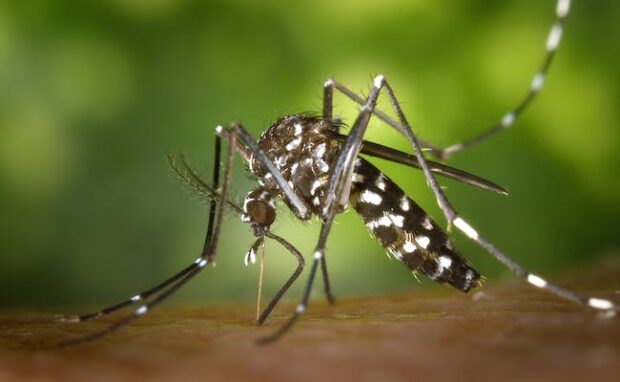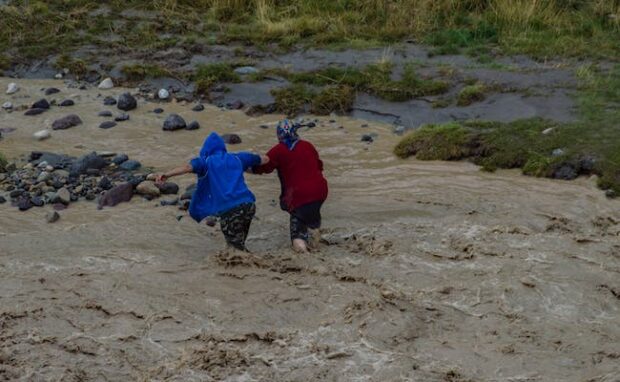First-ever global dengue dashboard would predict outbreaks
London School of Hygiene and Tropical Medicine (LSHTM) researchers are developing the world’s first dengue dashboard to track its spread worldwide in real time. Also, it will predict where an outbreak may occur three months in advance. As a result, people worldwide could anticipate and mitigate the disease in their countries.
The experts say the COVID-19 pandemic inspired them to create this dashboard. Once they complete this tool, governments could use it to protect public health. Also, it would be an important tool for your next overseas trip. You could install that tracker to decide whether dengue won’t be a problem in your upcoming vacation.
This article will elaborate on how the researchers will develop the global dengue dashboard and how it would function. Later, I will discuss some of the other latest disaster management tools.
How would the dengue dashboard work?

The London School of Hygiene and Tropical Medicine saw how coronavirus dashboards helped governments mobilize against the pandemic. Consequently, its researchers are developing a similar tool for dengue.
Dengue is a disease that mosquitos transmit by sucking blood from animals and people. It is a recurring problem in several countries, specifically in tropical Asia.
“I’ve spent decades working on dengue, and it still really bothers me that if I go online right now, there’s no one single source that shows what the current situation is and which countries across the world are having epidemics,” LSHTM assistant professor Dr. Oliver Brady said.
“I think the COVID pandemic highlighted how useful this tool could be for governments and the public,” he added while speaking with Telegraph. The dengue dashboard project received £430,000 from the Axa Research Fund at the time of writing.
It will initially monitor the dengue virus across 50 countries and then expand eventually. Moreover, it will track other information like temperature, rainfall, and infection rates.
You may also like: Cyclones slow down national economic growth by 10 years
The data will enable the online program to predict how transmission will shift over two to three months. Telegraph says the researchers have already rolled out the initiative in Vietnam.
Based on its results, they realized locals and tourists could benefit from the program, not just scientists and government officials. “If you’re going on holiday, for example, we hope the dashboard can be useful for monitoring the situation that is occurring where you’re going to travel,” said Dr. Brady.
“Then, we can link you to a whole load of resources about how to prevent mosquito bites and options for how to protect yourself,’ the study’s lead author added. The dashboard will launch sometime in 2024, which follows a record-breaking year for dengue transmission worldwide.
Other disaster management systems

We could consider dengue a disaster because it could lead to thousands of casualties. Also, it usually emerges after typhoons because they leave stagnant water that promotes dengue reproduction.
That’s why the Philippines is developing an AI disaster management system called DATOS. It is a project under the Department of Science and Technology – Philippine Council for Industry, Energy, and Emerging Technology Research and Development (DOST-PCIEERD).
It helps disaster response agencies estimate a flood’s extent. “Immediately kasi in disaster management actually you want to know where the affected areas are. This means you have to come out where they are so you can provide the necessary response like rescue, evacuation, things like that,” Dr. Enrico Paringit, executive director of DOST-PCIEERD, said.
It relays information to the PAGASA (Philippine Atmospheric Geophysical and Astronomical Services Administration) and the National Disaster Risk Reduction and Management Council (NDRRMC). “Before, we did not know what was happening on the ground. Now, down to the nearest barangay, you will know the real situation,” Paringit said.
You may also like: AI music study predicts hit songs
“The geo-hazard maps will show what will happen, the DATOS will show what is happening. For example, there was heavy rain last night, and when the satellite passes by, we will have data showing the extent of the flooding.”
The director drew parallels between the DATOS and Japan’s warning system. “For example, in Japan, they are developing a warning system with an 8-second lead time, that’s a huge thing, where you predict an earthquake is going to happen in 8 seconds.”
“It is still under development, but if it is possible in other countries, it could also be possible in our country,” Paringit said. The DOST executive director shared plans to put AI sensors in volcanoes to help local authorities evacuate residents before they erupt. Moreover, the DOST-PCIEERD joined AI Pinas, a conference and workshop that promotes AI awareness.
Conclusion
The London School of Hygiene and Tropical Medicine is developing a global dengue dashboard. It will start by monitoring the disease’s advance across 50 countries.
Then, the dashboard will gather various data to predict outbreaks two to three months in advance. As a result, people have time to prepare or prevent such scenarios.
It could also become an essential tool for your next international vacation. Learn more about the latest digital tips and trends at Inquirer Tech.